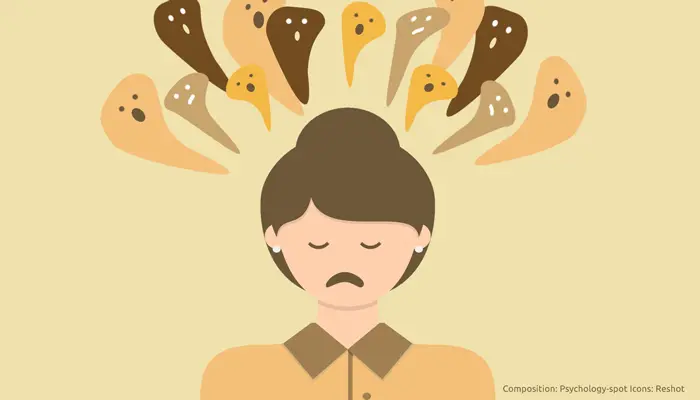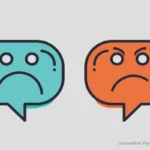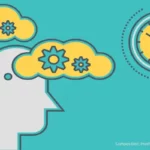
It is scary, there’s no doubt. When we open the newspapers we are assaulted by headlines that are not reassuring. We see an increase in the number of people infected and deceased, with some vertigo and sometimes even with a sense of unreality, as if it were difficult for us to get used to the idea of what is happening. Our everyday conversations begin to turn more and more around the coronavirus. Social networks are flooded with messages that do not talk about anything else. And so, immersed in this unusual and uncertain scenario, it is not strange that the coronavirus anxiety soars.
“Epidemics can create a Hobbesian nightmare: the war of all against all. A major outbreak of novel, fatal epidemic disease can quickly be followed… by plagues of fear, panic, suspicion and stigma”, wrote Philip Strong. This is why it is so important for each person to control their anxiety, a favor that they do to themselves and to others.
It’s normal to feel anxious, but don’t panic
Above all, it is important to be aware that it is normal to experience fear and anxiety in unfamiliar situations. When these situations can also represent a risk to our lives or that of the people we love, anxiety is triggered.
A study at the University of Wisconsin-Milwaukee found that we react more intensely – due to increased activation of the amygdala – when the situations we are exposed to are unknown or new than when they are familiar. This is why a new virus like COVID-19 generates so much fear and anxiety.
We should not berate ourselves for those emotions. It is an instinctive reaction and feeling bad about it will only worsen our mood. However, we must ensure that fear does not transform into anguish and anxiety into panic. We cannot allow ourselves to be carried away by these emotions and allow a full-blown emotional hijacking to take place; that is, that our rational mind is “disconnected”.
Losing control and succumbing to collective panic could lead to dangerous behaviors for us and those around us. Falling into the arms of panic can cause us to assume selfish attitudes, activating a kind of “save yourself who can”, which is just what we should avoid facing pandemics of this type. As Juan Rulfo wrote: “We save ourselves together or we sink apart.” The decision is ours.
From Shock to Adjustment: Phases of Anxiety in Epidemics
Psychologists have studied the phases we usually go through during an epidemic. The first phase is usually suspect. It is characterized by the fear of being able to contract the disease or that other people infect us. It is in this phase where there are more phobic incidents, rejection and segregation of groups that we consider possible carriers of the disease.
However, very soon we pass into a more diffuse and generalized phase of fear. We began to think about the ways of contagion, so that we no longer fear only contact with people, but that the virus can be transmitted through the air or by touching any object or surface. We begin to think that we live in a potentially infectious environment. And that generates a great anxiety that can make us lose control.
At that point it is normal for us to develop a hypervigilant attitude. We can become obsessed with getting sick and remain alert to the slightest symptom that makes us suspect that we have been infected. We also adopt a more suspicious attitude in the environments in which we normally move, so we take precautions that could later prove excessive, inappropriate or premature, such as assaulting supermarkets.
During these phases we operate in “shock mode“. But once we have accepted the new situation we enter an adjustment phase. At this stage we have already assumed a large part of what is happening and we recover rationality, so that we can think and plan what to do. It is in the adjustment phase where prosocial behaviors usually appear, when we strive to help the most vulnerable.
We all go through these phases. The difference is in the time it takes. There are those who manage to overcome the initial shock in a matter of minutes or hours and there are those who drag it for days or weeks. A study at Carleton University at the time of H1N1 epidemic, revealed that people who found it difficult to tolerate uncertainty experienced increased anxiety during the pandemic and were less likely to believe that they could do anything to protect themselves.
The key to fighting the coronavirus anxiety lies in accelerating this process and entering the adjustment phase as soon as possible because only then can we effectively deal with the crisis. And “The way to accomplish that is to guide the adjustment reaction, rather than trashing it, as it seems officials often do and journalists sometimes do“, according to Peter Sandman.
The 5 steps to relieve coronavirus anxiety
1. Legitimize fear
Reassuring messages – like “don’t be afraid” – are ineffective and can even be harmful or counterproductive. These types of messages create a strong cognitive dissonance between what we are seeing and living and the “order” to conjure fear. Our brain is not so easily fooled and autonomously decides to maintain the state of internal alarm.
In fact, in the early stages of the epidemic, hiding reality, trying to make up or downplaying it is extremely negative because it prevents people from preparing psychologically for what is to come, when they still have time for it. Instead, it is better to say, “I understand that you are afraid. It is normal. We all are. We’ll get through it together.” We must remember that we can’t hide fear, we must face it.
2. Avoid alarmist fake news
When we feel that we are in danger, it is normal for us to look for all possible clues in our environment to assess whether the level of risk has increased or decreased. However, it is important that we intelligently choose the sources of information that we consult, so that they do not fuel excessive anxiety.
This is a good time to stop watching sensational programs or read fake news of dubious origin that only generates more fear and anxiety, like many of the messages shared on WhatsApp. There is no need to be obsessively looking for information minute by minute. You have to stay informed, but with reliable data and sources. And always contrast all information. Don’t trust the first thing you read.
3. Distract yourself to chase away the dark clouds of pessimism
Life goes on, even if it is within the four walls of the house. To combat the psychological side effects of quarantine and coronavirus anxiety, it is important to distract yourself. This is an opportunity to do those things that you always put off due to lack of time. Reading a good book, listening to music, spending time with the family, dedicating yourself to a hobby … It is about distracting the mind from the coronavirus obsession.
Following a routine, as much as possible, will also help you feel that you have some degree of control. Habits give order to your world and give you a sense of tranquility. If your daily routines have been disrupted by quarantine, establish nice new routines that make you feel good.
4. Stop catastrophic thoughts
Imagining the worst possible scenarios and thinking that the Apocalypse is just around the corner does not help ease the anxiety about the coronavirus. Fighting against these catastrophic thoughts to forcefully expel them from our mind neither, because it generates a rebound effect.
The key is to apply radical acceptance. That means that at a certain point, we need to let things flow. Once we have taken all possible precautionary measures, we must trust in the course of life, being aware that we have done everything in our power. If we don’t hold onto those negative thoughts and emotions, they will end up leaving as they came. In these cases, adopting a mindfulness attitude will be of great help.
5. Focus on what we can do for the others
Much of the coronavirus anxiety is because we feel like we’ve lost control. While it is true that there are many factors that we cannot influence, others are in our hands. Therefore, we can ask ourselves what we can do and how we can be useful.
Helping vulnerable people or providing support, even from a distance, can give this situation that we are experiencing a meaning beyond us that helps us better deal with fear and anxiety.
And above all, let us not forget that “It is just such an exceptionally difficult external situation which gives man the opportunity to grow spiritually beyond himself”, according to Viktor Frankl. We cannot choose the circumstances that we have to live, but we can choose how to react and what attitude to maintain. The way in which we face these, as individuals and as a society, can make us stronger for the future.
Sources:
Taha, S. et. Al. (2013) Intolerance of uncertainty, appraisals, coping, and anxiety: the case of the 2009 H1N1 pandemic. Br J Health Psychol; 19(3): 592-605.
Balderston, N. L. et. Al. (2013) The Effect of Threat on Novelty Evoked Amygdala Responses. PlosOne.
Taylor, M. R. et. Al. (2008) Factors influencing psychological distress during a disease epidemic: Data from Australia’s first outbreak of equine influenza. BMC Public Health; 8: 347.
Strong, P. (1990) Epidemic psychology: a model. Sociology of Health & Illness; 12(3): 249-259.



